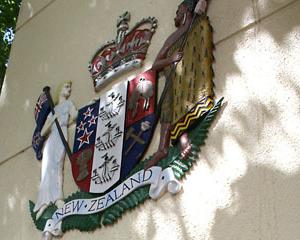A doctor living in Dunedin has been censured after prescribing Class C drugs, using false names and details, to feed her opiate addiction.
At a Health Practitioners Disciplinary Tribunal hearing in Dunedin yesterday, the doctor, who has permanent name suppression, had conditions imposed on her medical practice for when she returns to work.
She was also fined 15% of the cost of the case, $6600, and was required to pay half to the tribunal and half to the New Zealand Medical Council's professional conduct committee which brought the charges.
The doctor, who has not practised in Dunedin, admitted two charges relating to prescribing prescription medicines and controlled drugs, when not for a patient under her care, on 54 occasions between May 2011 and August 2012 and obtaining and consuming drugs of dependence, mostly codeine phosphate, without proper medical oversight.
She used fictitious identities and addresses and dishonestly used genuine identities, as well as her own identity, on the prescriptions.
The tribunal found the charges amounted to professional misconduct.
The doctor gave evidence at the hearing, saying she developed a dependence on codeine after taking it for a bad toothache in 2006 and then to help her sleep.
In 2011, she started writing prescriptions at work under family members' names or variations of those names and also obtained other prescription drugs.
When she was confronted about her prescribing by a medical superior, she admitted her conduct, and reported it to the Medical Council and police.
In May 2012, she was referred to an addiction programme, which she completed.
She received police diversion after attending a district court to answer charges relating to the dishonest prescribing.
The doctor lost her job, personally disappointed her family and let herself down.
''I have suffered immensely for my conduct,'' she said.
She had not practised since then, but was now keen to return to being a doctor, probably in an area where she would not be required to prescribe hard drugs, and promised to work with the council's medical committee to do so.
Professional Conduct Committee (PCC) counsel Simon Mount said the doctor obtained thousands of codeine tablets for her personal use as her opiate addiction spiralled out of control.
The behaviour was a clear case of professional misconduct, as codeine was a Class C controlled drug and prescribing it for herself was a clear abuse of the power doctors had to prescribe.
It was clearly inconsistent with medical legislation and codes of practice, as well as criminal law, he said.
As the doctor had removed herself from practice for the past two years, the committee was not seeking a suspension, as was usual in such cases, but there needed to be conditions put on her practice as her actions were premeditated, sustained, breached practitioners' right to prescribe, breached her employers' trust and posed a risk to patients, although no complaints about her behaviour had been laid.
''It is a very serious matter when a doctor misuses their powers to prescribe.''
Harry Waalkens QC, counsel for the doctor, said the doctor, described as highly skilled and competent, was the victim in this case and had done everything she could to comply with authorities, unlike other doctors in similar situations who lied or tried to cover up their offending.
As the offending was linked to a health issue he did not believe she should face the fines and costs the PCC asked for.
''This is the darkest day of her professional life,'' he said.
Her former employers had said she was a good doctor and they would re-employ her.
Censure was a reasonable penalty but anything else would be ''harsh or unreasonable'', he said.
Giving the tribunal's decision, chairwoman Maria Dew, of Auckland, said the doctor would only be able to practise again under the following conditions: she was prohibited from prescribing all controlled drugs for two years; she was not permitted to work in sole practice for two years; she had to accept medical supervision as required by the council's health committee; she was required to advise future employers of the decision for the next three years; she was required to register with and maintain a relationship with a general practitioner for three years; she was to undergo drug testing as deemed appropriate by the health committee; and to comply with all requirements set by the health committee.











